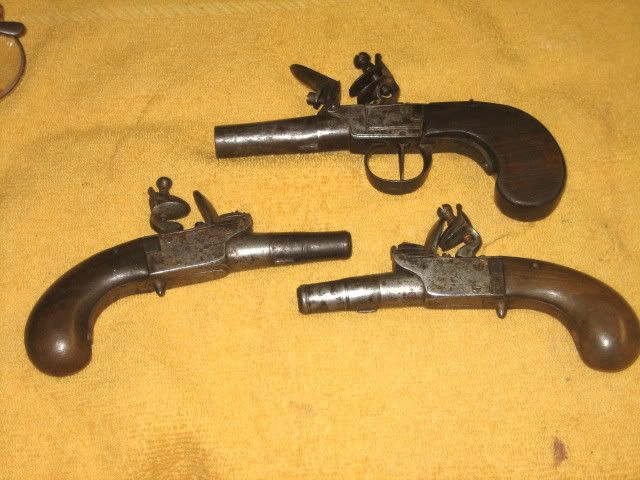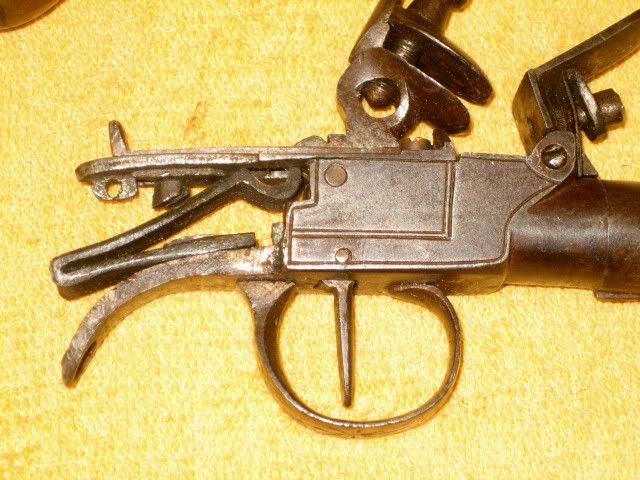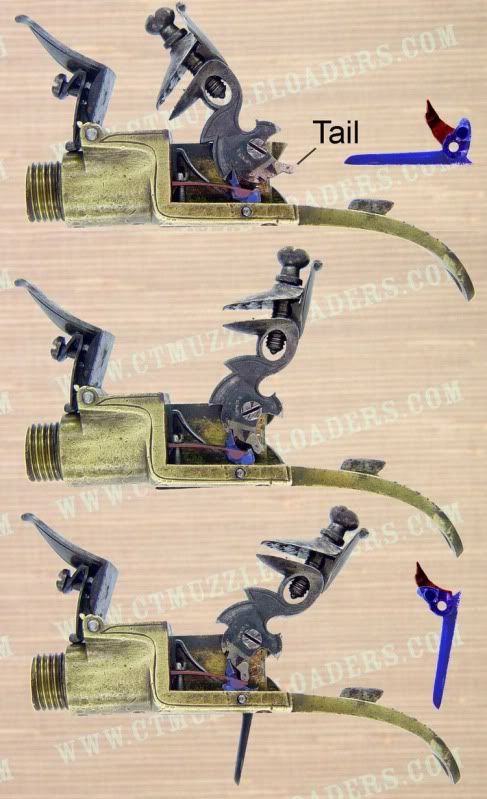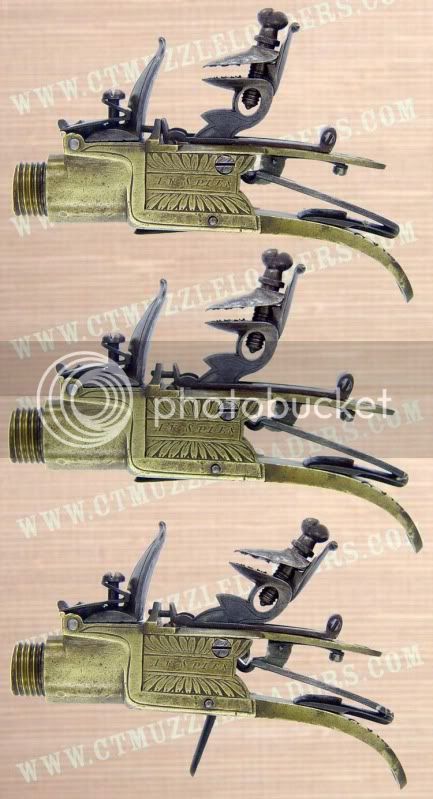There are no books about them because they are not Colts, Winchesters or Derringers, nor are they military or particularly romantic. They weren't used for dueling (at least not in "regulation" duels) and have generally never captured the imagination of collectors. There are lots of subjects that have had relatively little attention from authors ... there hasn't been a dedicated book on the M1861/63 CW muzzleloading rifles since Fuller wrote "The Rifled Musket" in 1958 and surely there are a lot more people collecting CW rifles than boxlock pocket pistols. Another example is the Brown Bess. There have been exactly 3 books on the Brown Bess starting with Chuck Darling's "Readcoat & Brown Bess" published in 1970. Thirty-nine years later we've had DeWitt Bailey's book and Stuart Mowbray & Eric Goldsteins new book... on a subject you might think would have a huge following.
However, there are a few collectors of pocket pistols - I work with one who has about 60 of them, but for a long time he was pretty much alone at it. He's even thought of doing a monograph on them but we're afraid we won't be able to sell enough to cover the costs. If you want to see some, go to the Baltimore, Hartford or Pottstown shows that are strictly antique in orientation and not over run with black rifles and beef jerky. There are very few venues left that collectors of pre-1820 arms find worthwhile. If they do go to the big popular shows, those aren't the things they take with them.
Having said that, I live in the northeast and I am certain this sort of pistol is far more common here, where there were already large urban populations while the flintlock was still in use, than it is in other parts of the country. They are even more common at English gun shows, partly because about 90% of them were made in Birmingham and because just about everyone carried a pair of them in his pockets in the 18th century. Also, being flintlocks, they are not subject to licensing and are thus much more "collector friendly" than other handguns. I suspect this fact alone is pushing up the prices of the best quality examples.
The prices on all of the Antique Arms dealer websites are almost always at the very top of the market and the auction sites are worse. Search "flintlock" on GB and see how many items ever even get a single bid. When someone does offer an item without a reserve and at a realistic starting price it often gets many bids... but the selling price is almost always below the starting prices for about 90% of similar items. My own experience has been that I've gotten the best deals at specialist auctions and at big shows. At the auctions you are frequently bidding against dealers who are looking to resell so all you have to do is slightly outbid the wholesale value. At the big shows there is real competition for your dollars... if there are 40 pistols in the room chances are someone is going to really want to sell one. This is a lot different than internet auctions where it costs nothing to re-list and item and the seller is hoping to catch the "big collector." This seems to be an ongoing fantasy among auction sellers. After, who is more likely to really know the market, the general dealer or the specialist collector?












